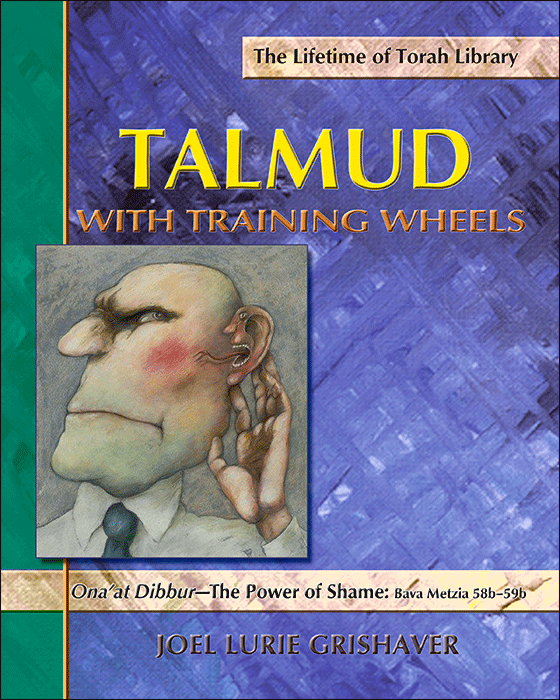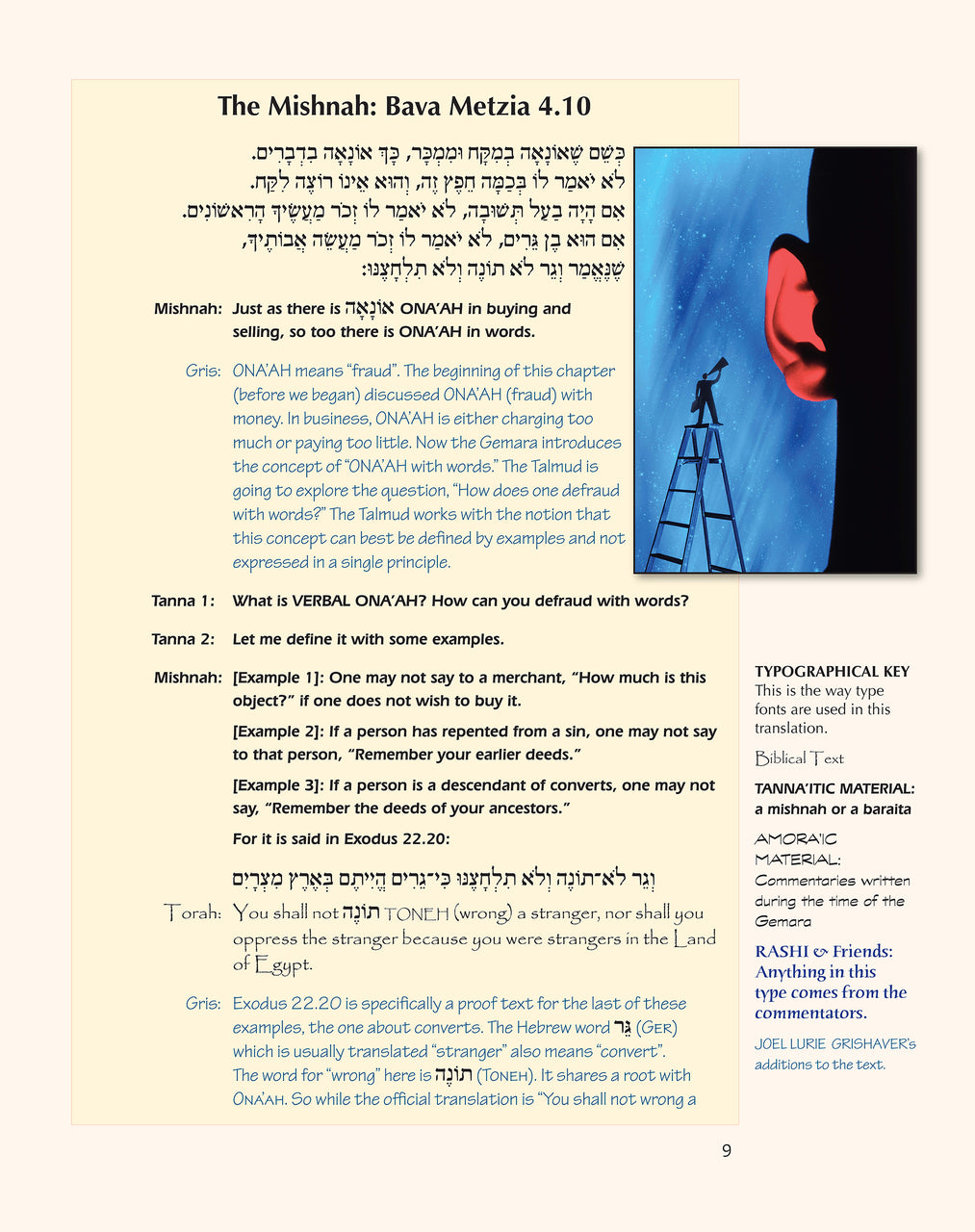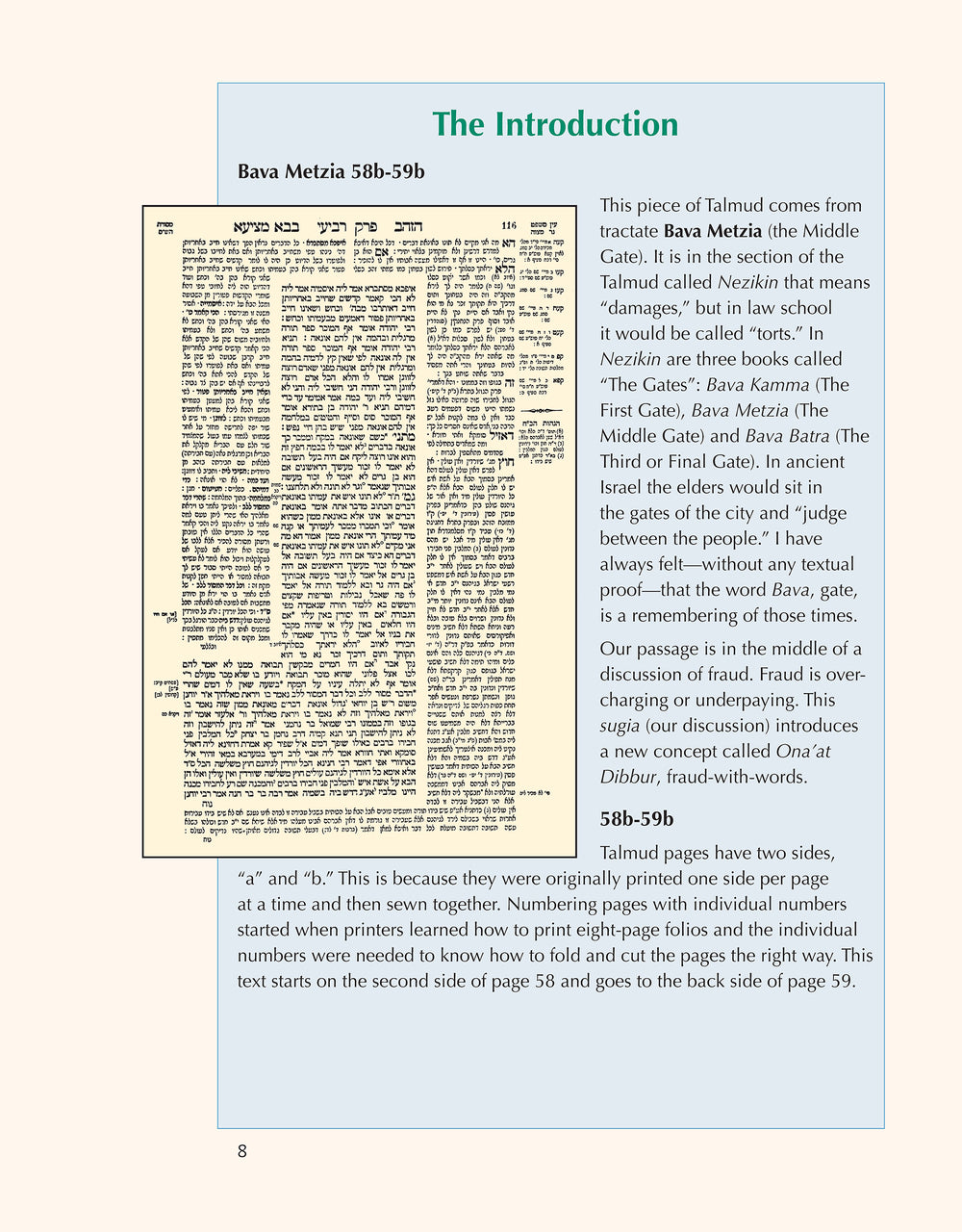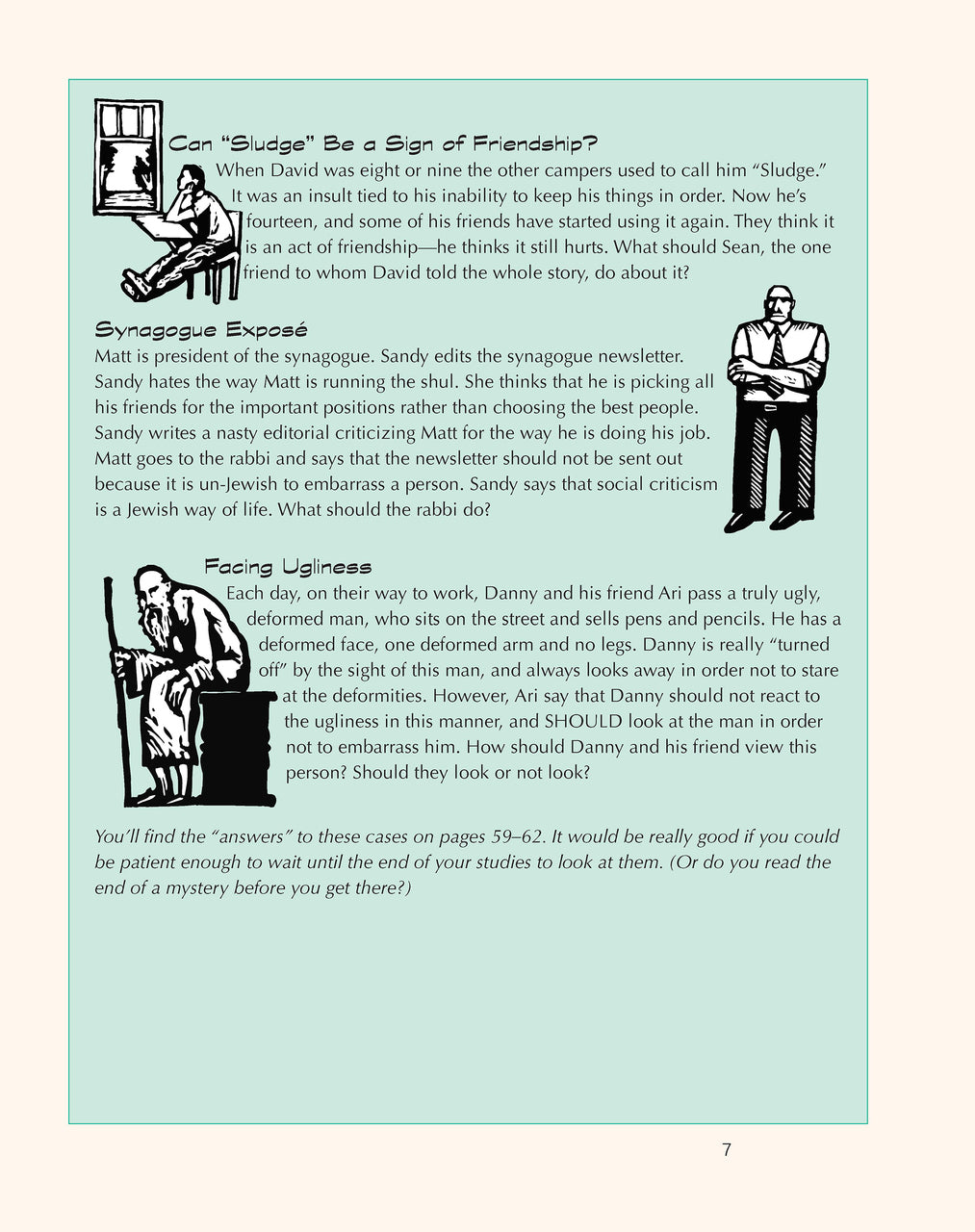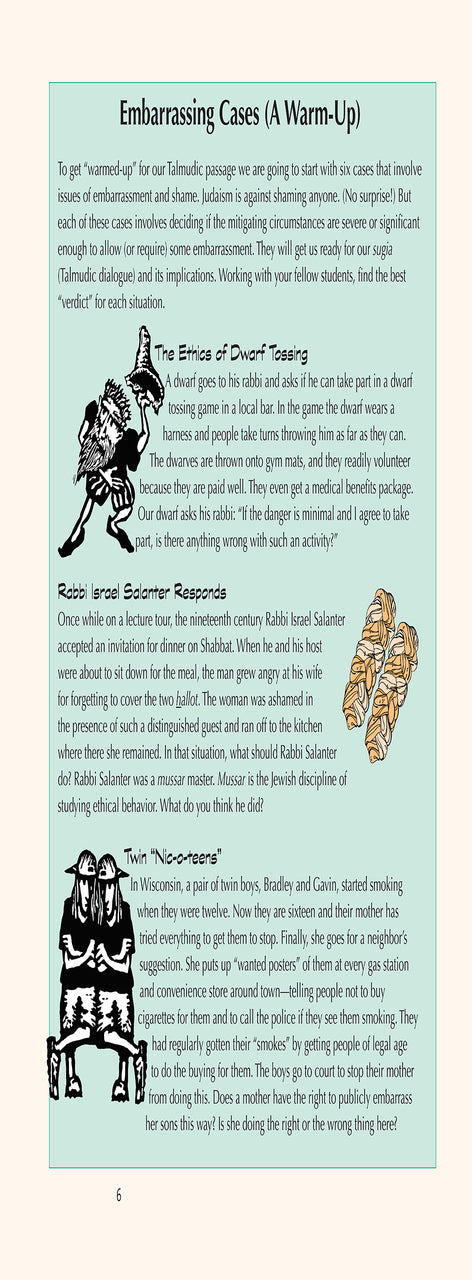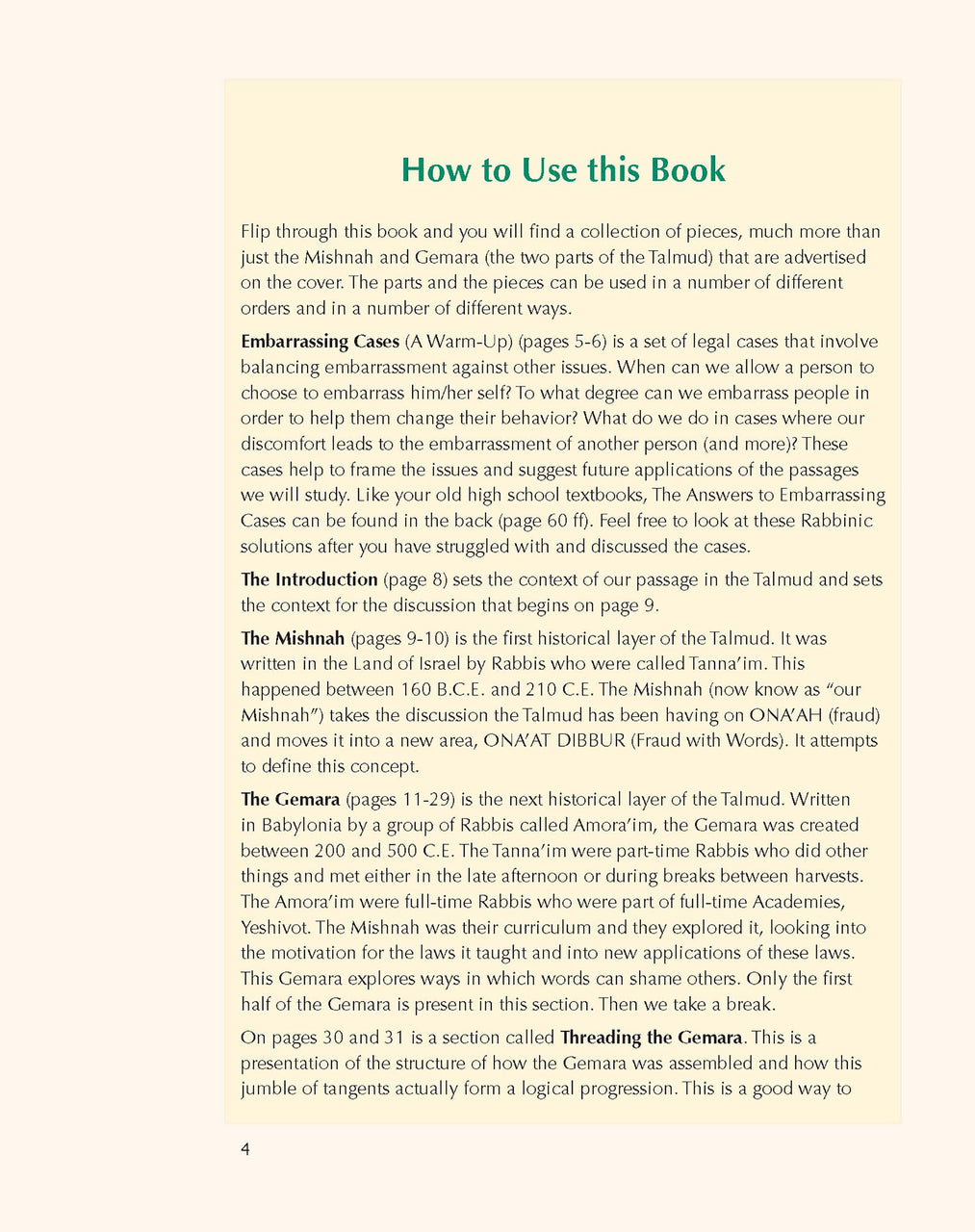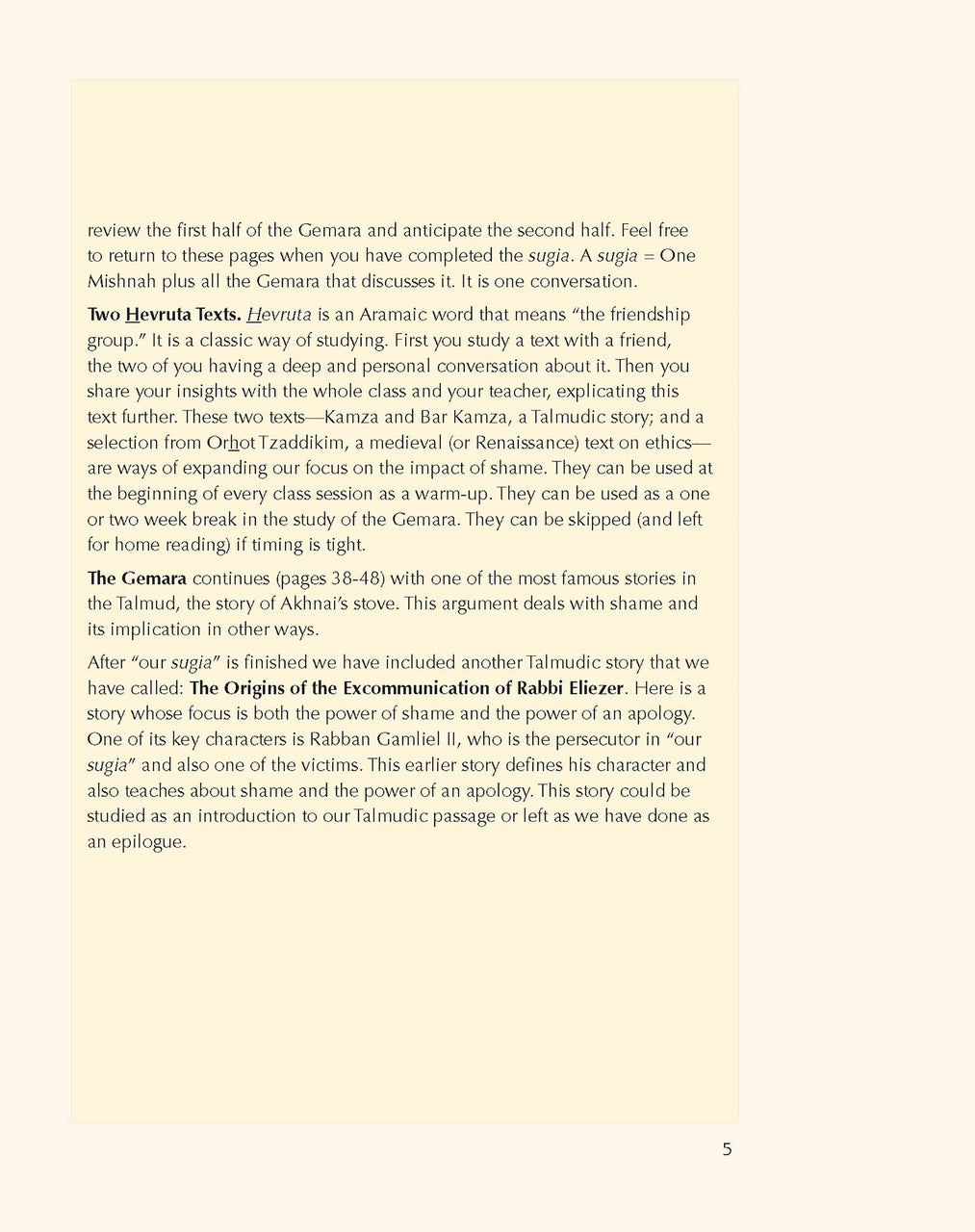Talmud With Training Wheels: Ona'at Dibbur-The Power of Shame
$12.95 USD
- SKU 61033
- UPC 9781891662874
This volume of Talmud With Training Wheels explores middle of a series of passages about monetary fraud. The Talmud pauses to talk about how words (and actions) have the power to shame. Here are the foundation texts for discussion of Shmirat ha-Lashon, the ethics of speech.
As you delve into Bava Metzia 58b-59b, prepare to be surprised. Nestled amidst intricate discussions of monetary fraud, the Talmud takes an unexpected turn, urging us to confront the profound impact of our words and actions. This sugya, seemingly out of place, shines a light on the ethical dimension of Jewish law, reminding us that true justice extends far beyond financial recompense.
From Financial Fraud to Verbal Barbs:
Imagine yourself engrossed in a complex legal debate about misrepresentation in sales. Suddenly, the conversation shifts. The rabbis pause to ponder the weight of a casual insult, the sting of public humiliation. They grapple with the power of words to inflict wounds far deeper than any financial loss.
This jarring juxtaposition is at the heart of 58b-59b. The Talmud forces us to acknowledge that the harm we cause can be far more nuanced than mere monetary exchange. A thoughtless remark, a cruel jest, can leave lasting scars on the soul, shattering dignity and eroding trust.
Rooted in Scripture:
The Talmud's stance on verbal abuse isn't plucked from thin air. It's firmly grounded in the bedrock of Jewish law, drawing upon powerful verses like Leviticus 19:18: "Do not avenge yourself or bear a grudge against any of your people, but love your neighbor as yourself." This principle extends beyond physical harm, encompassing our fellow humans' emotional and psychological well-being.
From Theory to Practice:
The sugya doesn't just lament the power of hurtful words; it offers practical guidance. We are instructed to be mindful of our speech, choose words carefully, and avoid causing unnecessary shame or distress. This emphasis on interpersonal sensitivity resonates deeply with modern empathy and responsible communication notions.
Beyond the Individual:
The impact of 58b-59b transcends the individual level. It speaks to our collective responsibility to create a society where respectful dialogue and understanding flourish. By actively challenging hurtful speech and promoting mindful communication, we contribute to a more just and compassionate world.
Exploring Further:
As you study this fascinating sugya, remember that its significance extends far beyond the pages of the Talmud. It invites us to reflect on our own words and actions, to challenge ingrained biases, and to build relationships based on mutual respect and dignity.
Here are some resources to enrich your exploration:
Remember, the study of Talmud is a journey of lifelong exploration. Embrace the unexpected turns, delve deeper into the ethical dimensions of Jewish law, and let the wisdom of 58b-59b guide you towards a more mindful and compassionate way of being in the world.
As you delve into Bava Metzia 58b-59b, prepare to be surprised. Nestled amidst intricate discussions of monetary fraud, the Talmud takes an unexpected turn, urging us to confront the profound impact of our words and actions. This sugya, seemingly out of place, shines a light on the ethical dimension of Jewish law, reminding us that true justice extends far beyond financial recompense.
From Financial Fraud to Verbal Barbs:
Imagine yourself engrossed in a complex legal debate about misrepresentation in sales. Suddenly, the conversation shifts. The rabbis pause to ponder the weight of a casual insult, the sting of public humiliation. They grapple with the power of words to inflict wounds far deeper than any financial loss.
This jarring juxtaposition is at the heart of 58b-59b. The Talmud forces us to acknowledge that the harm we cause can be far more nuanced than mere monetary exchange. A thoughtless remark, a cruel jest, can leave lasting scars on the soul, shattering dignity and eroding trust.
Rooted in Scripture:
The Talmud's stance on verbal abuse isn't plucked from thin air. It's firmly grounded in the bedrock of Jewish law, drawing upon powerful verses like Leviticus 19:18: "Do not avenge yourself or bear a grudge against any of your people, but love your neighbor as yourself." This principle extends beyond physical harm, encompassing our fellow humans' emotional and psychological well-being.
From Theory to Practice:
The sugya doesn't just lament the power of hurtful words; it offers practical guidance. We are instructed to be mindful of our speech, choose words carefully, and avoid causing unnecessary shame or distress. This emphasis on interpersonal sensitivity resonates deeply with modern empathy and responsible communication notions.
Beyond the Individual:
The impact of 58b-59b transcends the individual level. It speaks to our collective responsibility to create a society where respectful dialogue and understanding flourish. By actively challenging hurtful speech and promoting mindful communication, we contribute to a more just and compassionate world.
Exploring Further:
As you study this fascinating sugya, remember that its significance extends far beyond the pages of the Talmud. It invites us to reflect on our own words and actions, to challenge ingrained biases, and to build relationships based on mutual respect and dignity.
Here are some resources to enrich your exploration:
- Sefaria: This online platform provides access to the original Hebrew text of the Talmud alongside numerous translations and commentaries.
- MyJewishLearning: This website offers comprehensive articles and educational materials on Jewish law and tradition.
- Local Beit Midrash: Consider attending Talmud study sessions at your local synagogue or Jewish community center to gain insights from experienced scholars and fellow learners.
Remember, the study of Talmud is a journey of lifelong exploration. Embrace the unexpected turns, delve deeper into the ethical dimensions of Jewish law, and let the wisdom of 58b-59b guide you towards a more mindful and compassionate way of being in the world.
Have a question?
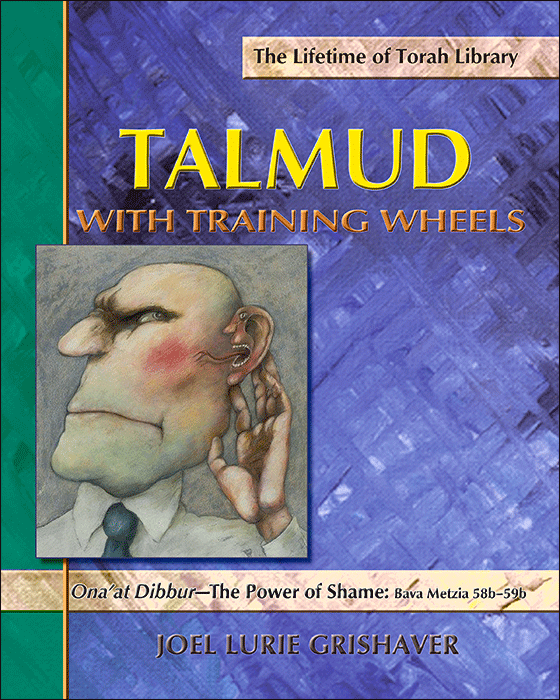
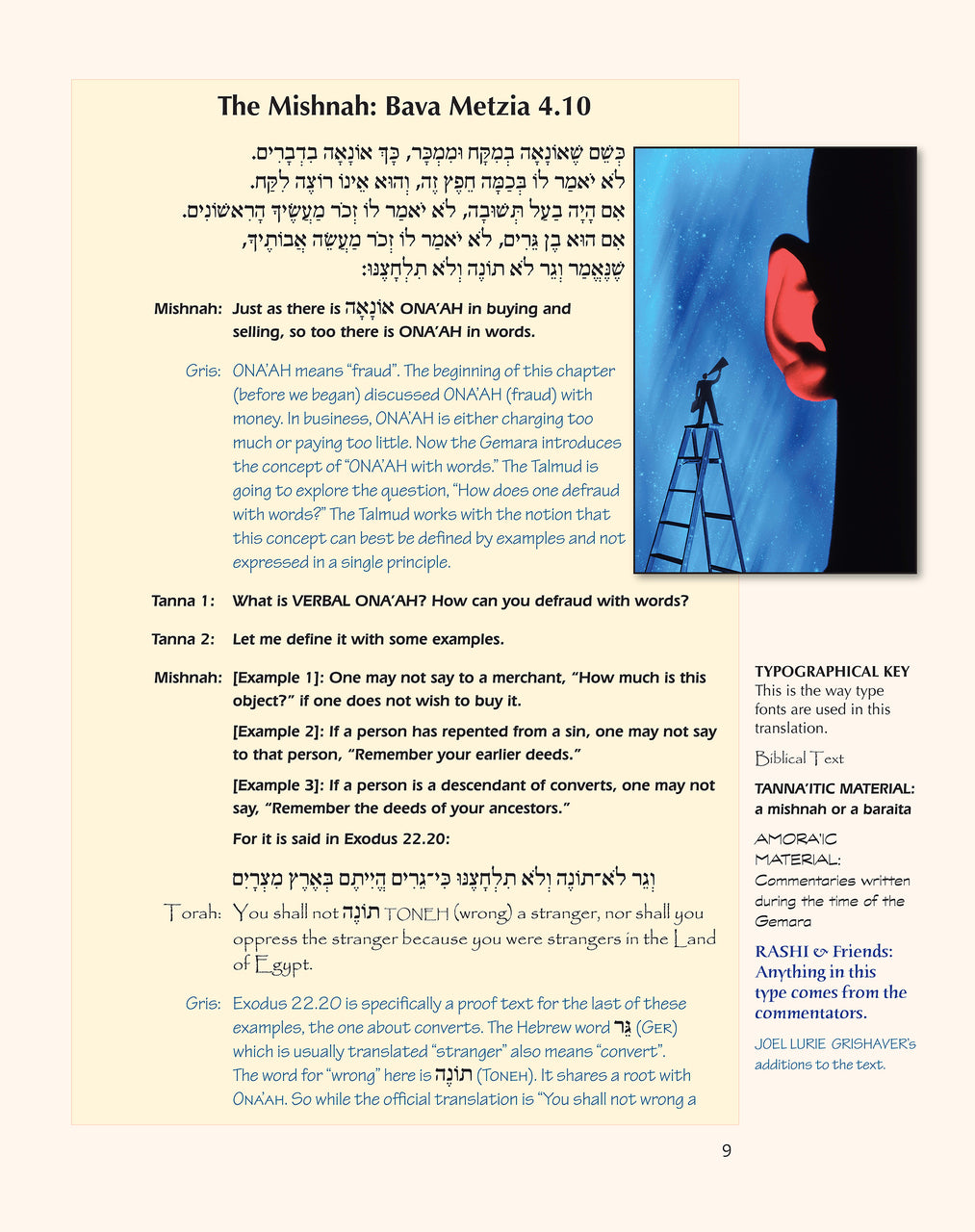
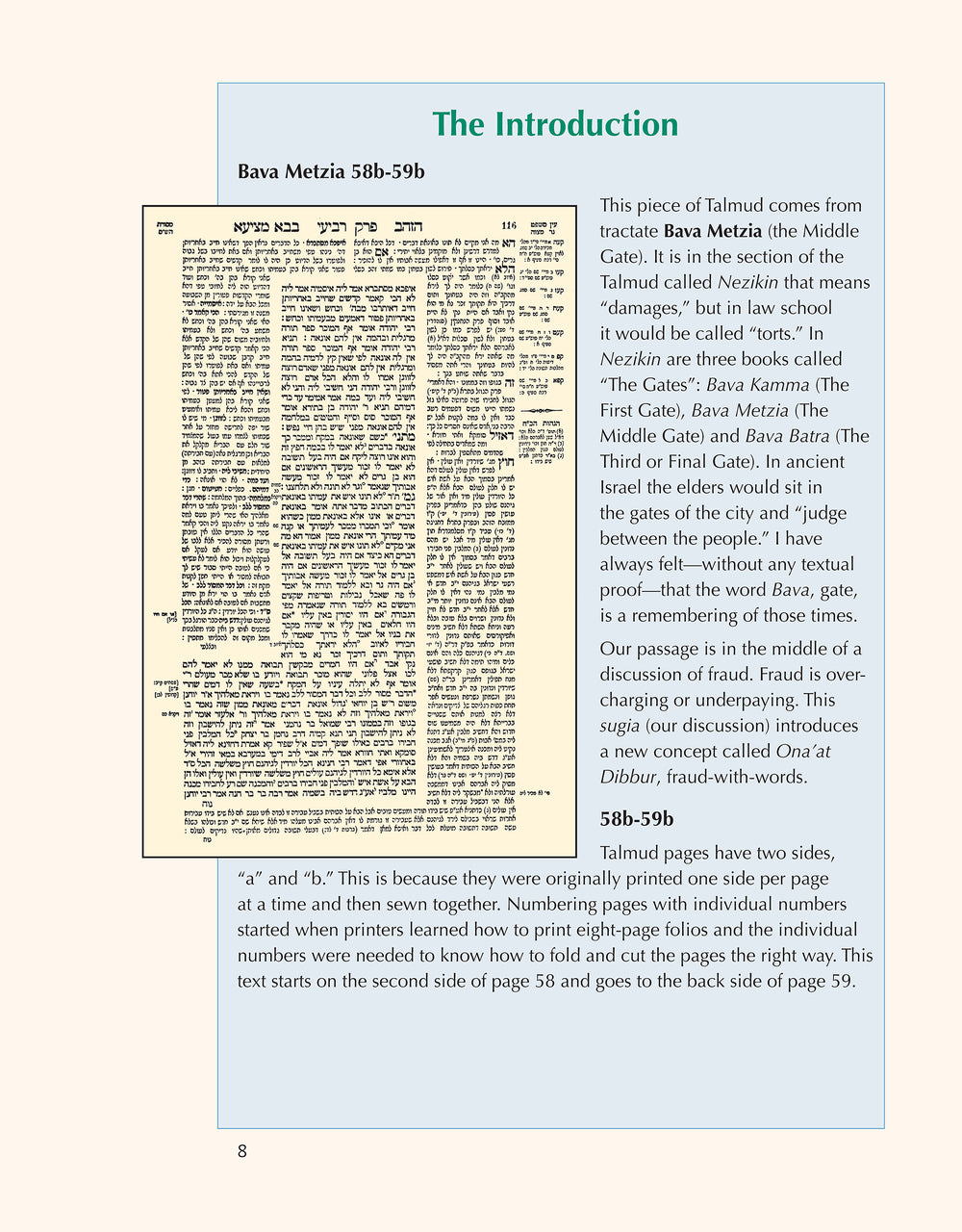
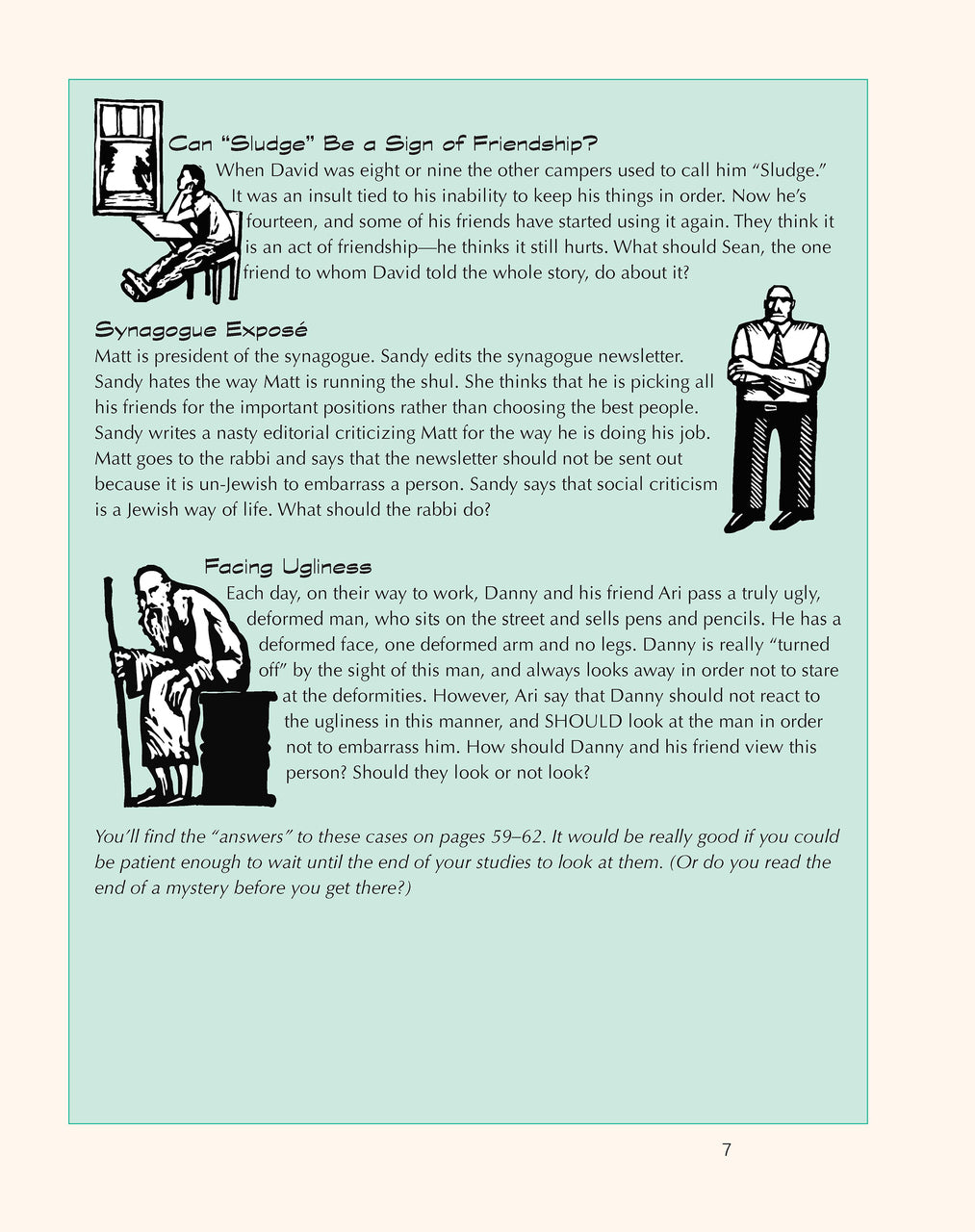
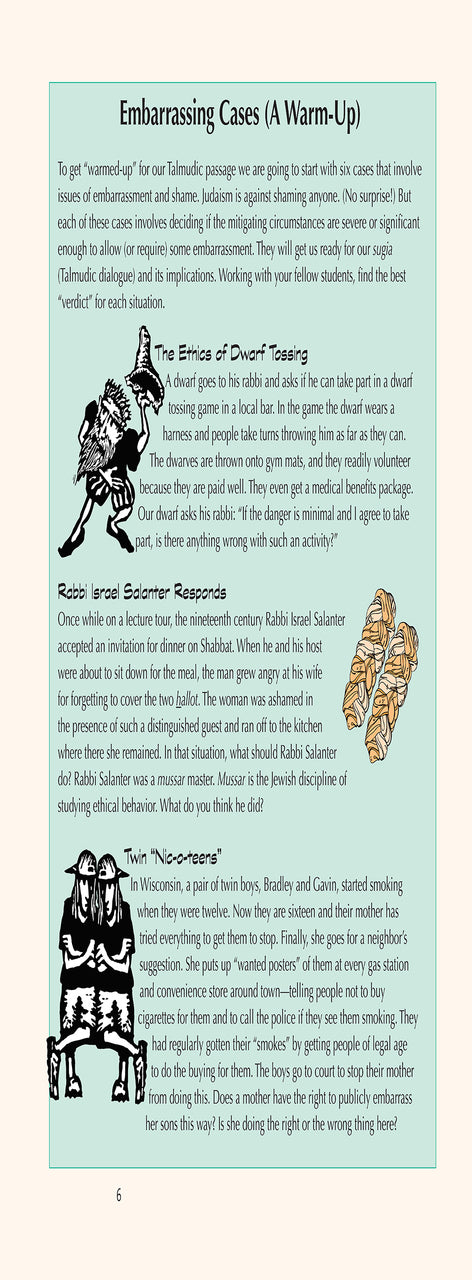
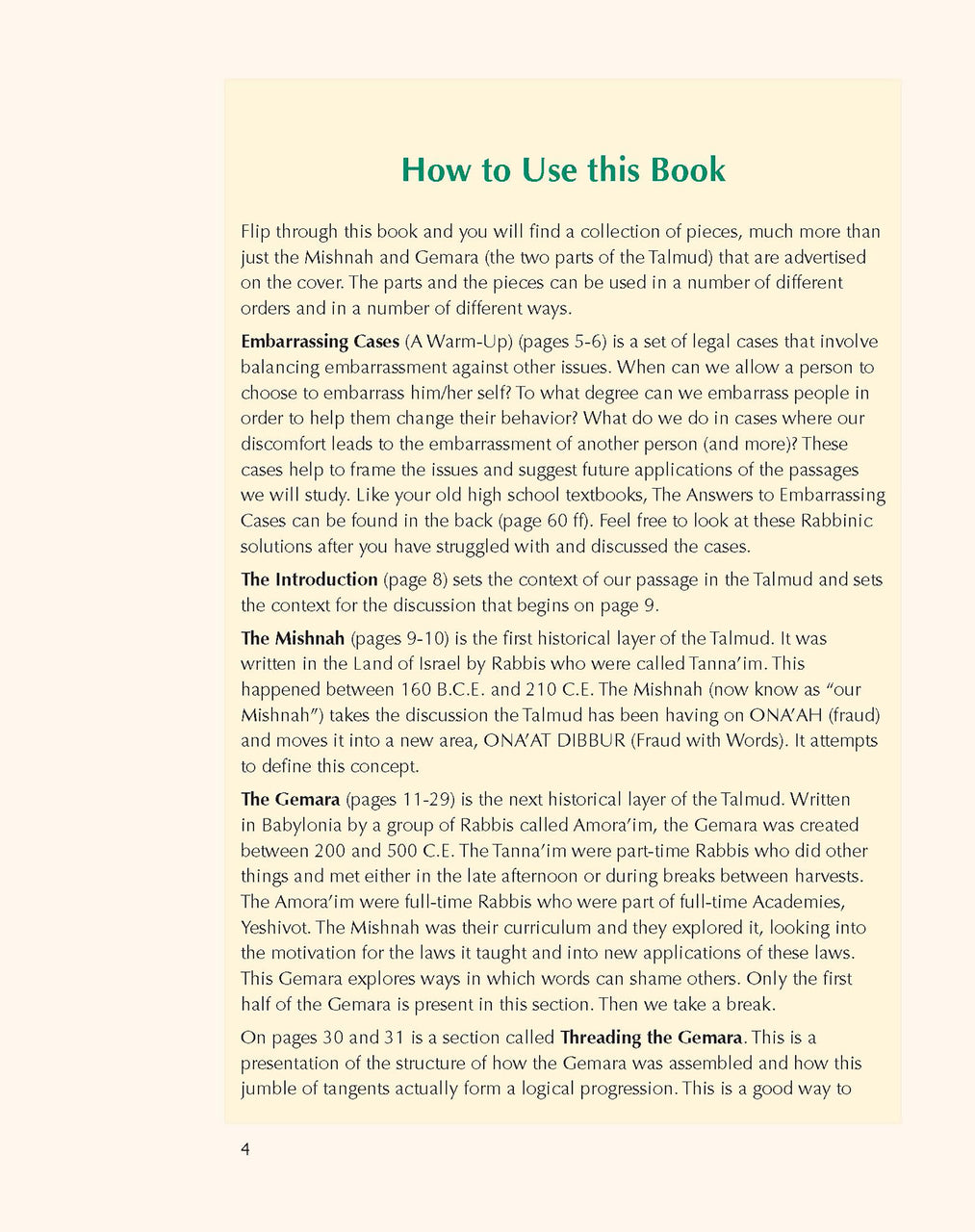
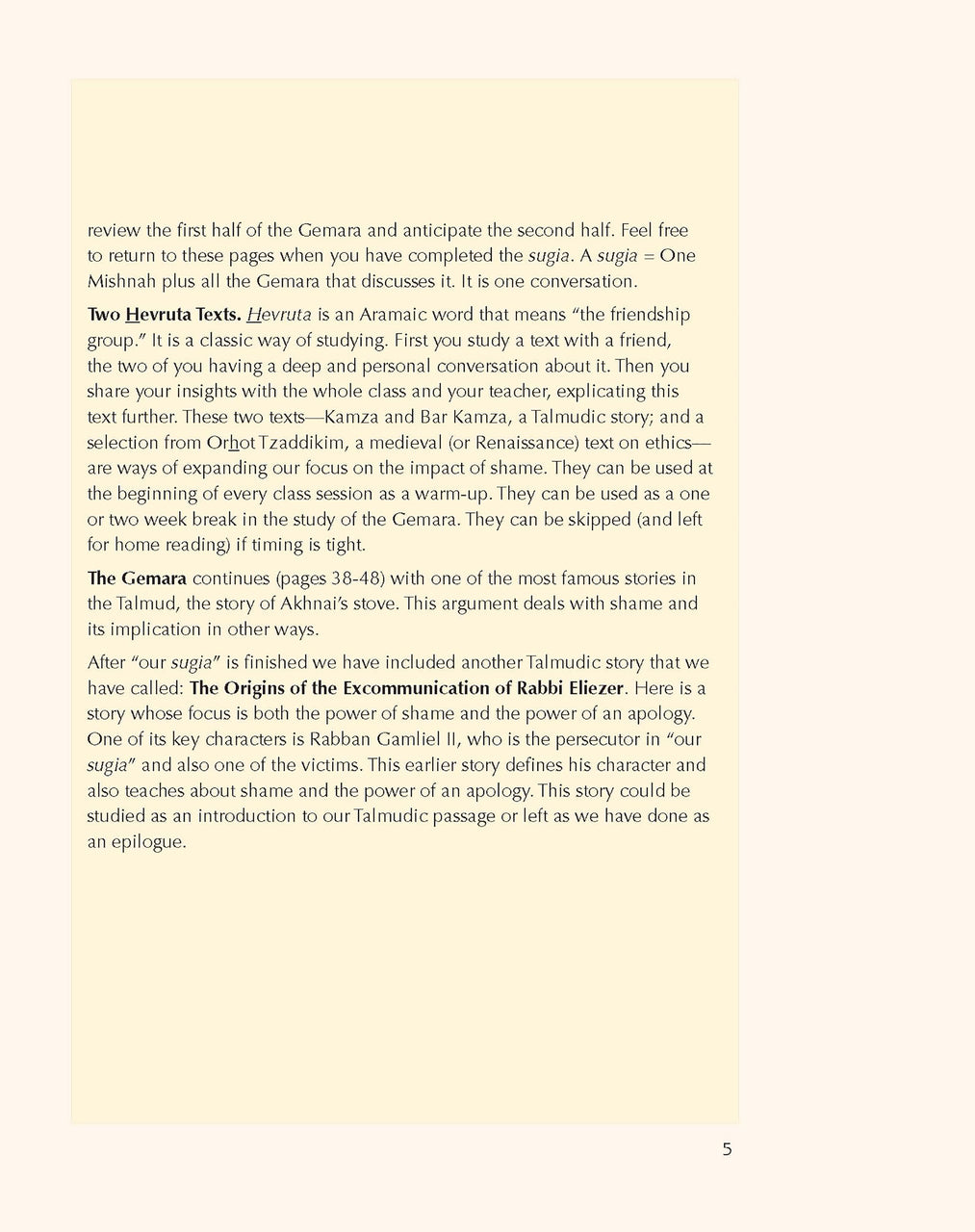
Talmud With Training Wheels: Ona'at Dibbur-The Power of Shame
$12.95 USD


